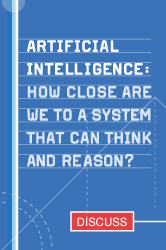Unscientific America: How Scientific Illiteracy Threatens our Future![]() by Chris Mooney and Sheril Kirshenbaum tries to make several different points. The central framework of the book, on which all the arguments are hung, is that science has a status, a place, in American culture, politics, and economy, and that this status has changed over time. Mooney and Kirshenbaum make the claim that science rose to an increasingly higher status than it had ever previously enjoyed through a series of events and transformations during the early and middle part of the 20th century, and subsequently, suffered a series of political and cultural defeats so that today real science holds a precarious position in the public view. The outcome of this reduced status is that important policy decisions that require an understanding of and appreciation for, and most importantly a certain level of trust in science are contaminated by right wing generated pseudoscience and politically motivated denialism.
by Chris Mooney and Sheril Kirshenbaum tries to make several different points. The central framework of the book, on which all the arguments are hung, is that science has a status, a place, in American culture, politics, and economy, and that this status has changed over time. Mooney and Kirshenbaum make the claim that science rose to an increasingly higher status than it had ever previously enjoyed through a series of events and transformations during the early and middle part of the 20th century, and subsequently, suffered a series of political and cultural defeats so that today real science holds a precarious position in the public view. The outcome of this reduced status is that important policy decisions that require an understanding of and appreciation for, and most importantly a certain level of trust in science are contaminated by right wing generated pseudoscience and politically motivated denialism.
There is no question in my mind that that this is correct. The specific arguments made in Unscientific America regarding the rise of the status of science, and increasing funding for scientific research, are also largely correct. At some point during the story, Unscientific America focuses on the role of science communicators. Readers of a certain age will enjoy the historical discussion of Carl Sagan's position in society and politics, and if you are like me, you'll learn things you did not know regarding his prowess.
Unscientific America also documents the negative effects of the diminution of the role of, and respect for, science in America, and the book documents that this change in attitude is in part due to the systematic dumbing down of our culture by right wing partisan forces.
Mooney and Kirshenbaum address the problem of communicating science to the public, and it is in this area that most negative criticisms of the book have arisen. For example, they spend one entire chapter taking PZ Myers and the "New Atheists" to task for riding rough shod over people's sensibilities. To me, it is very interesting, and I want to see this in a positive light, that an entire chapter of a major book on science communication is devoted to new atheists and the blogosphere. This serves, in a way, to underscore the fact that faithless radicals are truly at the negotiating table. I happen to disagree with Mooney and Kirshenbaum's take on Myers, his blog, and his handling of Crackergate. (Which should not surprise you. I am, after all, the one who found the image of Jesus on the famous trash can banana.) Also, the Cracker Chapter does disrupt the flow of the book and distracts from the main argument, in my view.
Many readers have had a hard time understanding what the main point of Unscientific America is in relation to science communication, suggesting that Mooney and Kirshenbaum don't really know what the point is themselves. I think this is not a lacking on the part of the authors, but rather, it is because the situation is itself undefined and vague, like a battlefield with very few troops spread across a great deal of terrain. Science and society touch in many places but they tend to be discontinuous places. Cable TV shows, but only a couple, are science-oriented (and they all suck). Prime Time TV currently sports forensic science (in a totally unrealistic way) but the presence or absence of science in this venue is capricious and unpredictable. Science is required in high school and college. But so are a lot of other things. Science may or may not be part of a person's weekly media intake. Many Americans probably don't even know when they are looking at science, or when science is in fact making a difference in their lives. Most people probably read, see or hear most of what they consciously encounter from the scientific world in the from of snarky remarks by TV pundits or anchors or sensationalized but uncontextualized "wow" reports about whales or killer bacteria or NASA scientists doing something esoteric but loud and expensive.
Most people do not develop positions on science policy. Most people receive their positions from wherever they receive all of their political views. From Rush Limbauch or Keith Olbermann, or someone. To combine my own personal view (which I have drifted into here, sorry...) with that of Unscientific America: Regular citizens and scientists are separated by a very narrow but very deep canyon, resting comfortably on either side of this canyon and vaguely aware of the others across the way. When science policy issues arise among the citizenry, the scientists don't really play a role. When scientists lobby for their funding from the big agencies and other sources, they don't really account for the people over on the other side of the canyon. This has been the case for years, and over this time, the social and cultural relevance of actual science has pretty much vanished among the populous, and the ability to understand what motivates or interests the general public... or just even how to talk to them ... has disappeared from the culture of science. Not that it was ever there. Looking back, it is clear that the bridges that did exist across this canyon were built by regular people inspired by the occasional super-communicator, such as Carl Sagan. Those bridges were not, in any systematic way, built by the scientists.
Clearly, a central point of the book is that science needs to regain a position of respect and perceived importance, and to get out from under the thumb of right wing anti-science denialists and industry apologists. But to do this, it may be useful to know why science has lost its political grip, and what the best way to get back some traction may be. The authors have criticized the old school "popular science" approach as something that has not worked in the past, and they see education reform as too slow. Yet, I'm fairly sure they are not against education reform, and they probably see the existence of a healthy science geekhood as not a bad thing, even if it is not the best way to solve the current dilemma.
With respect to the history of the problem, Unscientific America is totally there. It's a well done accessible account not meant to be a scholarly work. With respect to the definition of the problem, for the most part, Unscientific America is there as well, although I do not agree that the so called "New Atheist" voices are ruining it for everyone, and I wish Sheril and Chris would just appreciate Cracker Gate for what it was. But much of what Mooney and Kirshenbaum say about the problem of science communication is in my view, dead on even though most of my colleges in the scientific world do not agree. The fact that the people who clearly have failed to communicate the important features of science to usefully enhance and affect public understanding of policy does not make them expert on what should be done to better develop public understanding of science policy. It makes them failures in that area. It makes their opinion about how to do what they've done so poorly rather irrelevant.
The assertion by scientists that they know what they are doing when it comes to communication with non scientists smacks of things like the "mommy instinct" and other wooish beliefs that science tends to eschew.
When it comes to what to do next, how to approach this problem, Mooney and Kirshenbaum make the same mistake I see so many of my fellow bloggers make, and so many of my fellow political activists as well. They take sides not just against the obvious enemy (Republicans, Morons and Megalomaniacs) but also against their allies. So I'll declare the "howto" part of this book a first (or second) draft.
Read the book. Respond to it. Help do something to make Unscientific America obsolete. In other words, try to be a good citizen.











Comments
Thanks, Greg. I haven't read the book but I will. When you write about doing something effective to influence policy, I think of Darlene Cavalier and her citizen science blog. http://www.sciencecheerleader.com/
She has spotted the gap in achieving a solution just as you have.
She is pushing to reopen the office of Technology. She says there is no connection to congress so she is working to be that advocate for science to congress. For instance, she is working with the Boston Museum of Science to do public engagement of science with public issues. Her group will synthesize the issues and get them to congress -- providing sort of a feed back loop.
Posted by: lynn fellman | January 13, 2010 10:13 PM
I was hoping you were going to start up the Great Scientific American Blogwar again, but this is all very mild and measured. Pooh. Can you at least piss ERV off or something?
Posted by: KristinMH | January 13, 2010 11:42 PM
There is plenty to argue about over the Cracker Chapter. Maybe we can get something going there.
Posted by: Greg Laden | January 14, 2010 12:04 AM
I read the book, and I found their attack on the 'New Atheists" rather pathetic. I think they shot themselves in the foot with that move.
I'm tickled pink that we atheists are feeling less afraid of confronting religion than we have been.
Posted by: Charles | January 14, 2010 12:06 AM
Part of the problem is that Mooney/Kirschenbaum say (in the Kwok/McCarthy blog) "This is the problem, and we have a solution, but it's top secret." All good scientists are naturally mistrustful of secrets. So far M&K; have not given any details on their secret solution. There were numerous substantive issues raised about the book; I think Ophelia Benson has a pretty long list - and yet the authors refused to address any of those issues. That has unsurprisingly resulted in a lot of people saying the authors must be dishonest at best.
I would side with the camp who say "even the authors don't know what they are talking about" rather than create excuses on the authors' behalf ("it's a complex subject and everything is so vague") - making excuses is pointless.
Posted by: MadScientist | January 14, 2010 1:51 AM
Have you read the book? (Just curious)
Posted by: Greg Laden | January 14, 2010 2:00 AM
All good scientists are naturally mistrustful of secrets.
To qualify this rather strong claim, I'd say that when you have an interesting idea well worth exploring, you can't always speak about it loudly everywhere until some other scientist goes scooping you out. So there's some level of secrecy involved in working sciences. The thing is, we don't tell "I have a secret / rocket data set that will make you turn mad when you see it published"... We simply wait to have it all done.
I don't hold a position yet, but I've been working long enough to have experienced what would be labeled as "inspiring others without having the opportunity to benefit my own ideas" several times (and usually by very great, big and respectful peers). Enough to now keep everything precious to myself so deep, until I get in a position to do it myself (if it ever happens). I may nevertheless not be what you meant by good scientist (it depends whether you were implying only ethics or speaking about peer celebrity).
Posted by: Laurent | January 14, 2010 3:46 AM
I haven't read the book (and I am not a scientist), but your "canyon" metaphor is spot on.
It strikes me that what scientists are trained to do is research, hyptothesize, test, analyze data, publish results, (wash, rinse, repeat).
The politics they encounter are in meetings with other scientists, or with faculty or bosses in academia. Scientists in the private sector face politics from corporations, and pressures to make their science look the way the potential funders of their project want their science to look like.
But mostly they do scientist-type work. Some of them also do a lot of grant-writing.
The work of interfacing with the public is not science meat-and-potatoes. It's PR, it's speechifying, it's organizing at the community level, advocating, writing opinions (not results), persuading, schmoozing when necessary, and taking the heat pretty directly from the usual anti-science warriors.
Which all smacks of plunging into politics head-on. Which most scientists run away from.
The rare being like a Carl Sagan or a Michio Kaku is not enough, as you note, to do more than build an occasional, and temporary bridge between the walls of the canyon, and these bridges fall down when that occasional celebrity-scientist retires from public life.
The PR stuff is hard work. There's no regular, guaranteed check or tenure that goes with it. It can get very confrontational at times. It takes resourcefulness, thinking out of the box, consummate people skills, and political savvy.
Which is to say, it is not science. Finding someone who has some knoiwledge, and as you say, a respect for science who is going to lay themselves on the line day and day out to fight to win public respect for science, is hard to do.
Clearly, there need to be some organizations that make it easier to do. We need a Bill and Melinda Gates style foundation that is dedicated to restoring respect for science and establishing productive, positive use of the principles and benefits of science in our everyday life. Or something - something that brings a lot of regular folks together to make progress on this, instead of the occasional, lone superstar who carries the torch for 10 or 20 years, then the ball is dropped again for an indefinite period.
There has to be a way to get regular people involved with organizations that are sustainable over generations, and not overly dependednt on any one person.
It is a tough problem. But I think well within the reach of solving if the scientific community wants to seriously devote time and resources to it.
Posted by: yogi-one | January 14, 2010 4:08 AM